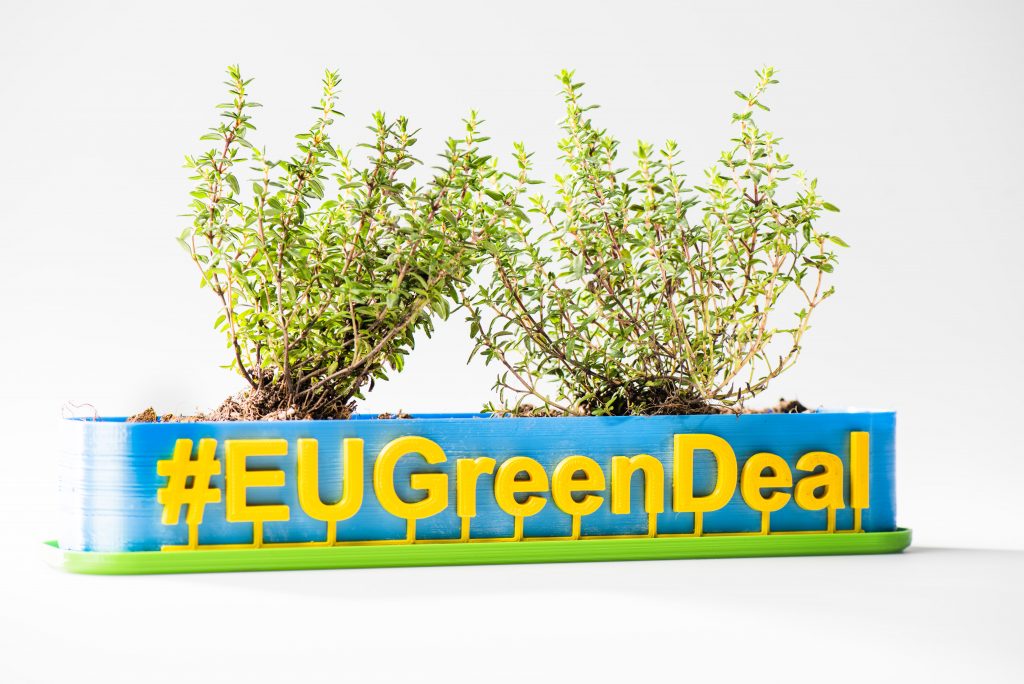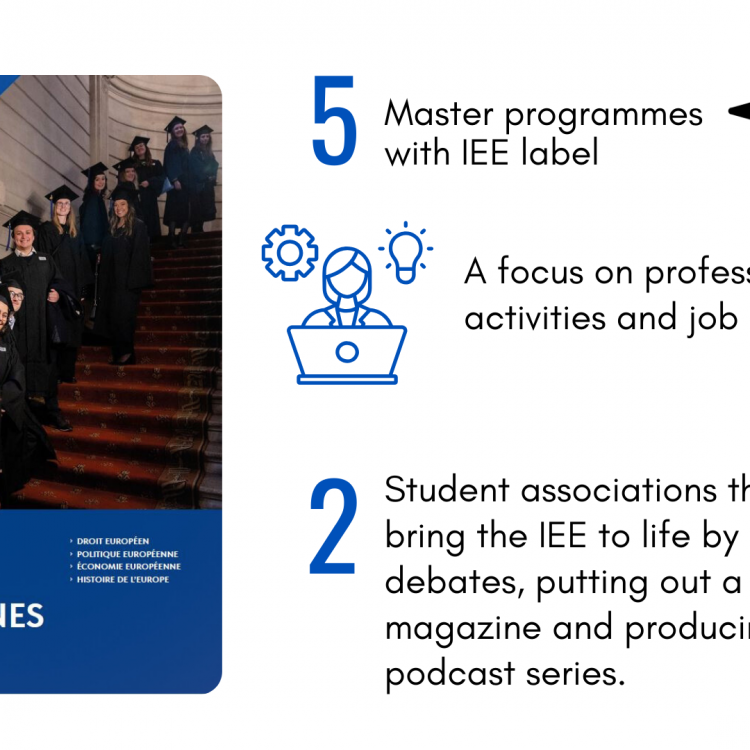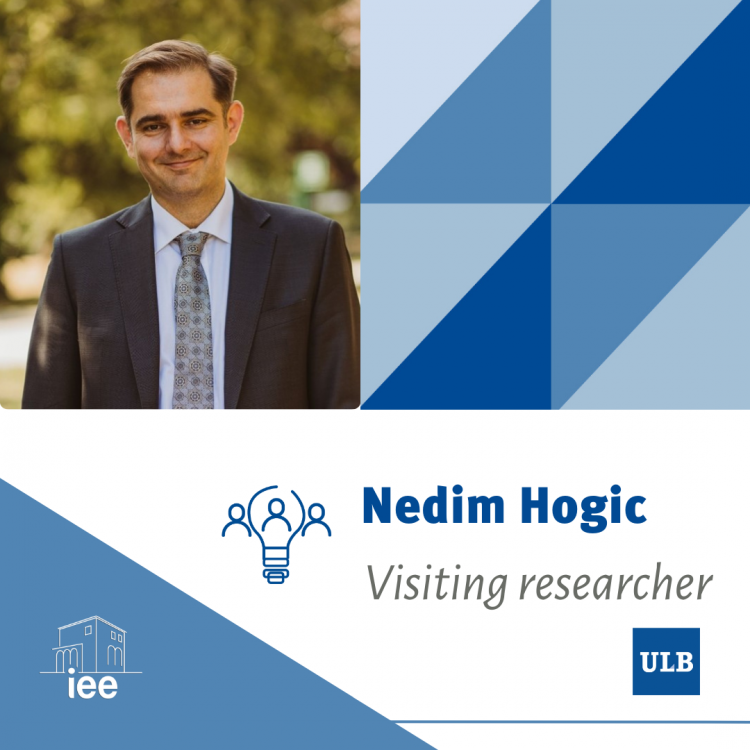 Nicolas Baygert is Lecturer at Sciences Po (IEP Paris) and IHECS (Bruxelles) Visiting Lecturer (University of Kent – BSIS)
Nicolas Baygert is Lecturer at Sciences Po (IEP Paris) and IHECS (Bruxelles) Visiting Lecturer (University of Kent – BSIS)
 Luca Iuliano is a recent graduate of the Specialised Master in EU Interdisciplinary Studies (class of 2019-2020) and Research Assistant at Protagoras
Luca Iuliano is a recent graduate of the Specialised Master in EU Interdisciplinary Studies (class of 2019-2020) and Research Assistant at Protagoras
This research has been conducted by Protagoras[1] in partnership with our Institut d’études européennes). To see the full report:
COVID-19 and the Green Deal
The COVID-19 pandemic has profoundly disrupted EU projects, including the Green Deal, the sustainable growth programme issued by the European Commission to make the EU climate neutral by 2050. Our ambition is to explore different strategic approaches in order to maximise the opportunities for citizens to be part of the green transition through engaging communication, in the uncertain context of the health crisis. Our research thus aims to answer the following question: how to induce behavioural changes among citizen-consumers in favour of the “green transition” in the COVID-19 era?
Reaching out to citizens
Through its ongoing research, our laboratory is observing the importance of the Commission’s role in setting common objectives to move towards a Europe that is more respectful of the environment and biodiversity. The institution’s objective is to reach out to the general public, beyond the bubble of aware citizens, to convince as many people as possible to reduce their carbon footprint. The EU must avoid adopting an elitist position with technical and impersonal messages.
Making Europe (and Europeans) ‘greener’
This research therefore recommends favouring a local approach that responds to the needs and concerns of different target groups, considering them as key players in this transition. It also demonstrates that efforts must be dedicated to deconstructing preconceptions about more sustainable practices. Similarly, changing social acceptance in a positive way would allow behavioural changes to be induced at the individual level[2].
Finally, this research is in line with the literature on pro-environmental nudges[3], with a view to encouraging citizen-consumers to behave in an eco-responsible manner. In addition to the traditional tools of persuasion, this instrument makes it possible to indirectly influence the behaviour of citizens while leaving them freedom of choice. Richard Thaler and Cass Sunstein, two nudging theorists, define the concept as “any aspect of the architecture of choice that changes people’s behaviour in a predictable way, without eliminating any of the options or radically changing financial motivations“[4]. With its high impact at low cost, the use of nudges could thus benefit the EU’s communication strategy aimed at inducing sustainable behaviour among citizens.
Interested in all the details? Download the full Protagoras-IEE-ULB report
If this is a topic you’re interested in, check our executive course Environmental Law and Politics: A course to examine the role of the EU as a global environmental player.
Other IEE-ULB publications about the European Commission’s communication strategy include:
[1] PROTAGORAS is an academic think tank bringing together researchers and professionals in political and public communication. This think tank, based in Brussels, is attached to the Institut des Hautes Etudes en Communciations Sociales (IHECS).
[2] Tosun, J., Scherer, U., Schaub, S. et Horn, H. (2020). Making Europe go from bottles to the tap: Political and societal attempts to induce behavioral change. Wiley Interdisciplinary Reviews / Water, 7(3), pp. 1-18.
[3] Schubert, C. (2017). Green nudges: Do they work? Are they ethical? Ecological Economics, 132, pp. 329-342.
[4] Thaler, R. & Sunstein, C. (2008). Nudge: Improving Decisions about Health, Wealth, and Happiness. Londres: Yale University Press.
Photo: Copyright European Union, 2020 | Source: EC – Audiovisual Service





Comments
Hello,
happy to discover your initiative ! Maybe would you be interested by the “systemic reinterpretation of the Green Deal” aiming at proposing an “orchestrated” and harmonious organisation of the multiples actions to undertake by taking into consideration all their irreductible and multiple interactions. This initiative was already presented at a seminar organised by Edwin Zaccaï ad is available both in English and French on the web ite of te Club of Rome
https://www.clubofrome.eu/a-systemic-interpretation-of-the
https://www.clubofrome.eu/une-interpretation-systemique-du?var_mode=calcul
There is also the book published in French one year ago with forewords of Jean-Pascal van Ypersele, Edgar Morin and Bertrand Piccard on a “Mise en oeuvre intégrative des transitions énergétiques ”
https://www.dunod.com/sciences-techniques/mettre-en-oeuvre-transitions-energetiques-
strategie-integrative-et-gestion
At you disposal should you be interesr-ted by these inittiatives?
Truly yours,
Jacques de Gerlache
http://www.greenfacts.org
(eco)toxicologist, Dr Sc Pharm
scientific councellor to the CFDD (Belgian Conseil Fédéral du Développment Durable)
Professor of eco(toxico)logy and environmental management,
etc ..